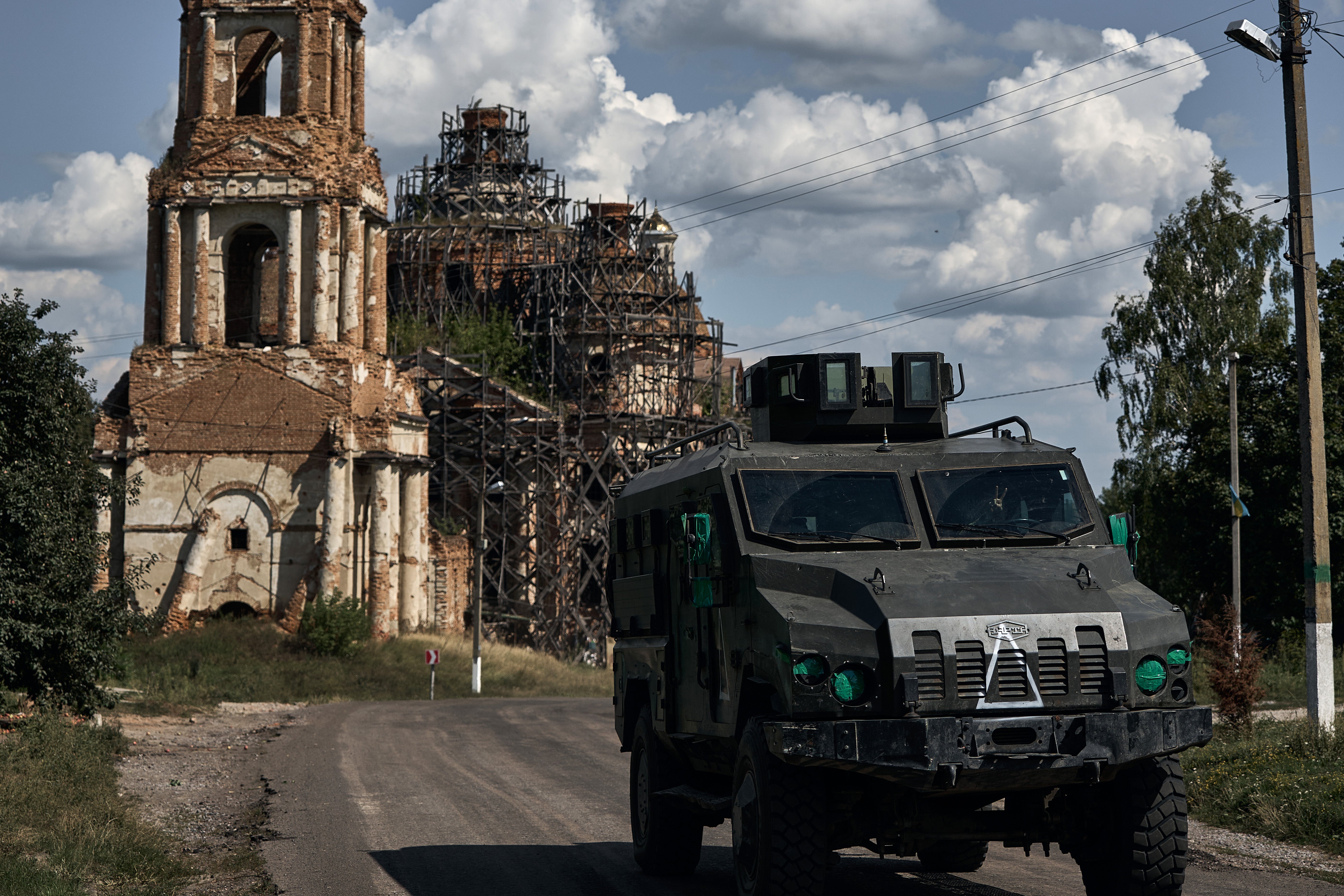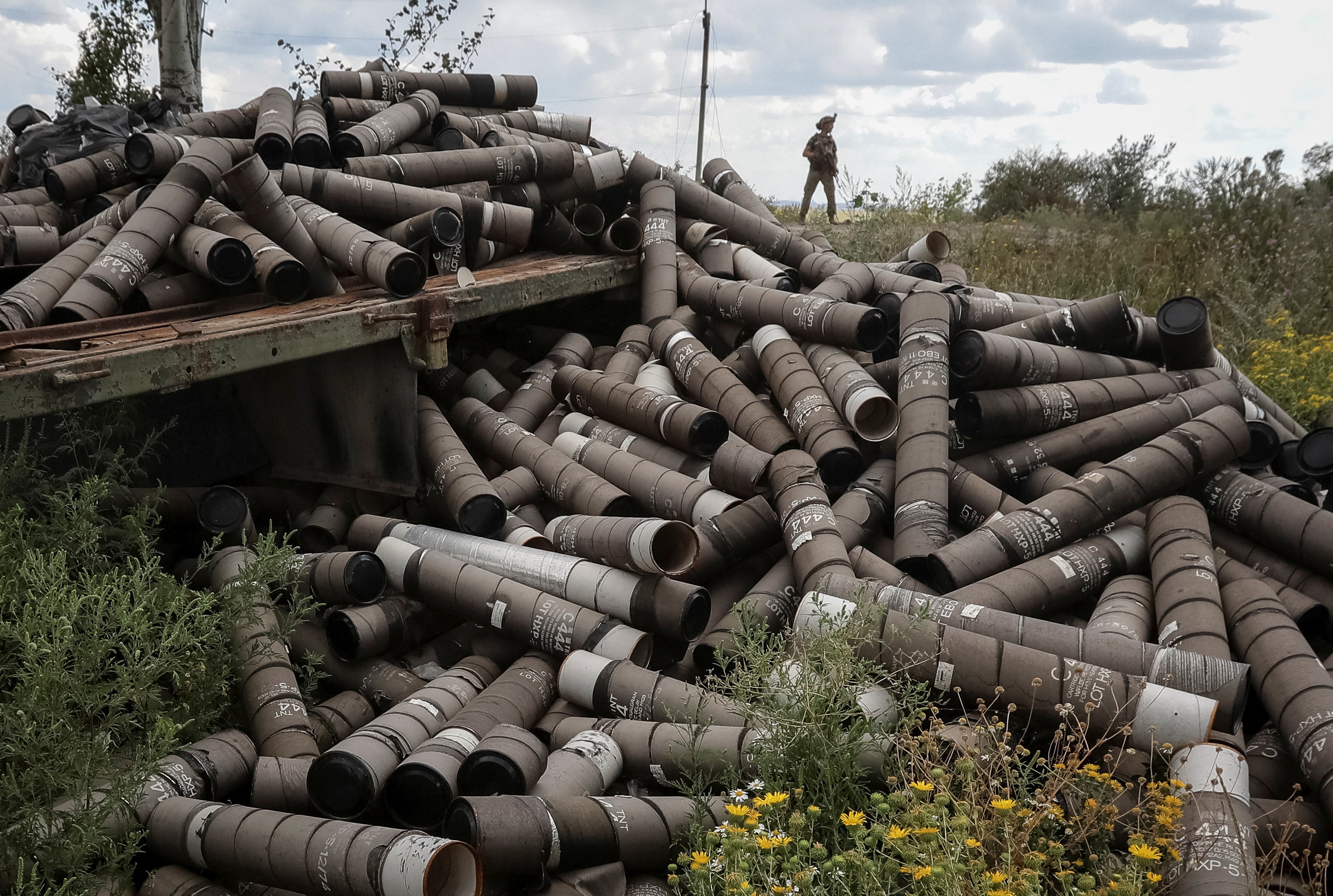Disarray in Putin’s military command exposed by Ukraine’s attack in Russia, says Zelensky’s chief adviser
Exclusive: Mykhailo Podolyak tells The Independent that the cross-border assault into the Kursk region shows that Putin has ‘very little control’ over the border

Your support helps us to tell the story
From reproductive rights to climate change to Big Tech, The Independent is on the ground when the story is developing. Whether it's investigating the financials of Elon Musk's pro-Trump PAC or producing our latest documentary, 'The A Word', which shines a light on the American women fighting for reproductive rights, we know how important it is to parse out the facts from the messaging.
At such a critical moment in US history, we need reporters on the ground. Your donation allows us to keep sending journalists to speak to both sides of the story.
The Independent is trusted by Americans across the entire political spectrum. And unlike many other quality news outlets, we choose not to lock Americans out of our reporting and analysis with paywalls. We believe quality journalism should be available to everyone, paid for by those who can afford it.
Your support makes all the difference.Ukraine’s attack on Russian soil has exposed the disarray in Vladimir Putin’s military command, president Volodymyr Zelensky’s chief adviser has told The Independent.
Kyiv’s military exploited poorly-defended border positions and later overran two fortified Russian defensive lines, essentially infantry strong points with anti-tank ditches, before pushing around a dozen miles into Kursk, taking towns like Sudzha in the process. Ukraine’s forces say they are still advancing.
Mykhailo Podolyak said that Russia’s military “doesn’t live up to its name” and that poor communication between generals and soldiers on the ground had left weaknesses for Ukraine to attack. He added that the assault showed Russia has “very little control” over its border regions despite the Kremlin’s claims to be a “heavily militarised society”.
“We are destroying the propagandistic view of Russia that it is a heavily militarised society and that it has a strong sense of cohesiveness,” the adviser said. “The reputation of its own armed forces doesn’t live up to its name. The operation in Kursk has very much shown that.”
Since Ukraine launched its daring incursion into Russia, Kyiv’s forces have seized hundreds of square miles of territory. Britain’s Ministry of Defence backed Mr Podolyak’s assessment in an intelligence update on Friday, saying that “disarray and disorganisation” marked the initial response by Russia’s forces.
Russian military bloggers had acknowledged the build-up of Ukrainian forces on the border a few days in advance, indicating that senior military personnel in Moscow had been aware.

But Emil Kastehelmi, an open source intelligence analyst tracking the war in Ukraine for the Black Bird Group, suggested that by that point, it was “too late” for Moscow to react.
Reinforcements take “a week, give or take a couple of days, to arrive”, he said, adding that the main issue was the lack of preparedness from the forces already there.
Mr Kastehelmi described the conscripts positioned on the Kursk border as “less capable and less trained”, adding that “they didn’t have any heavy equipment in the area, and there were less supporting elements”.
“If you lack capabilities to do any swift moves after you have seen an enemy breakthrough, it becomes increasingly difficult to make a swift response,” he said.
“And when there are almost no troops there, then the outcomes in Kursk are what happens.”
US officials suggest Russia is now relocating “several thousand” troops from less hot areas of the front line in northeast Ukraine to stabilise the incursion. But it is only after a significant sliver of Russian land has come under Kyiv’s control.
The last time Putin publicly discussed the incursion into Kursk, at the start of this week, he appeared visibly angry when the local governor, Alexei Smirnov, began detailing the extent of Ukraine’s advance, abruptly cutting him off midway.

Mark Galeotti, an expert in Russian security, suggests this reaction is not only because Putin “does not like to face tough realities”, no less so in a televised meeting, but also because the autocrat deserves a “considerable portion of the blame” for the poor defences on the border.
“Putin for two years has been talking about the importance of fortifying the border and saying that lots was being done – but it wasn’t,” he said.
“To a considerable extent, that is because contracts were being issued for tank traps and ditches, and the rest of it, but many of those contracts were going to companies owned by Putin’s cronies and it was largely being embezzled instead of being spent.”
Podolyak claimed that the success of Ukraine’s assault showed Kursk was one of many regions that “the central government has very little control over”.
He added: “This incursion shows that Russia is not in control of its space. Despite what it says, it is unable to coherently control its land mass.”
Mr Galeotti and Mr Kastehelmi, however, suggest that the poor defences in Kursk indicate more that Putin is “neglecting” the regions, and that he is more focused on trying to gain territory in eastern Ukraine, particularly in the Donetsk area.
“Russia’s main focus is still in Donetsk,” said Mr Kastehelmi. “They are still making gains in the direction of Pokrovsk [a town in the region]. They seem to be eager to continue with their slow rate of success there.”
Ukrainian military authorities admitted on Friday that Russian troops were “advancing at a fast pace” towards Pokrovsk and urged civilians to evacuate.
Herein lies Putin’s real focus, said Mr Kastehelmi. “Ultimately, square kilometres gained in Kursk may very well cost Ukraine square kilometres in Pokrovsk”, he said.
Join our commenting forum
Join thought-provoking conversations, follow other Independent readers and see their replies
Comments